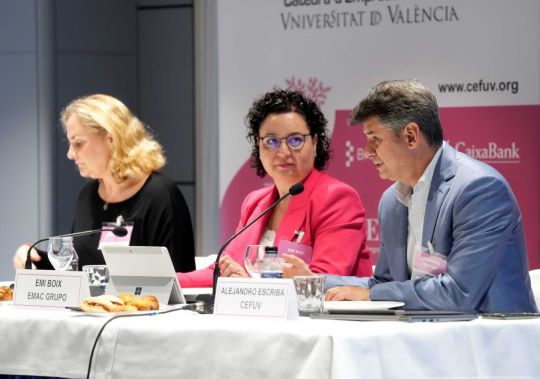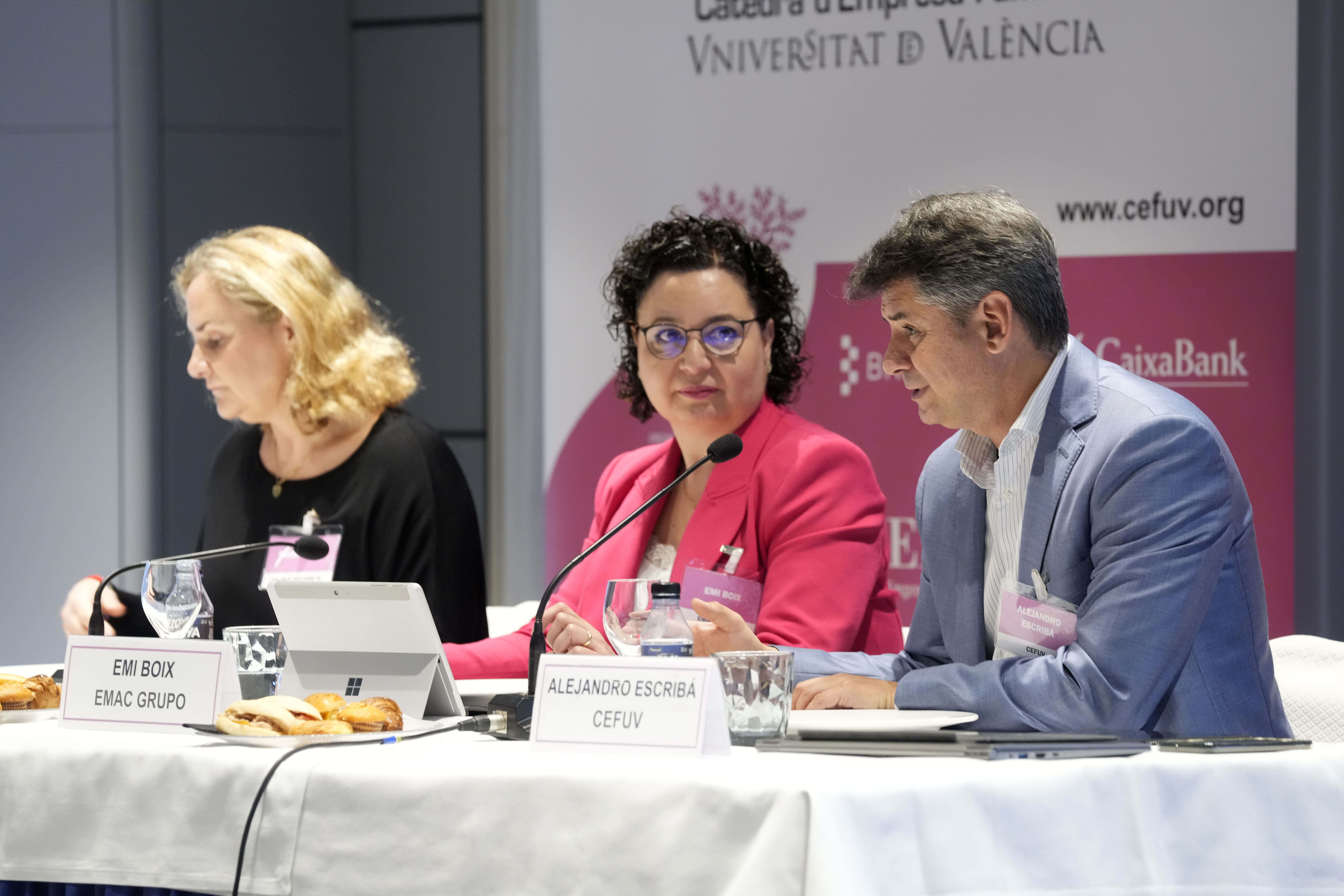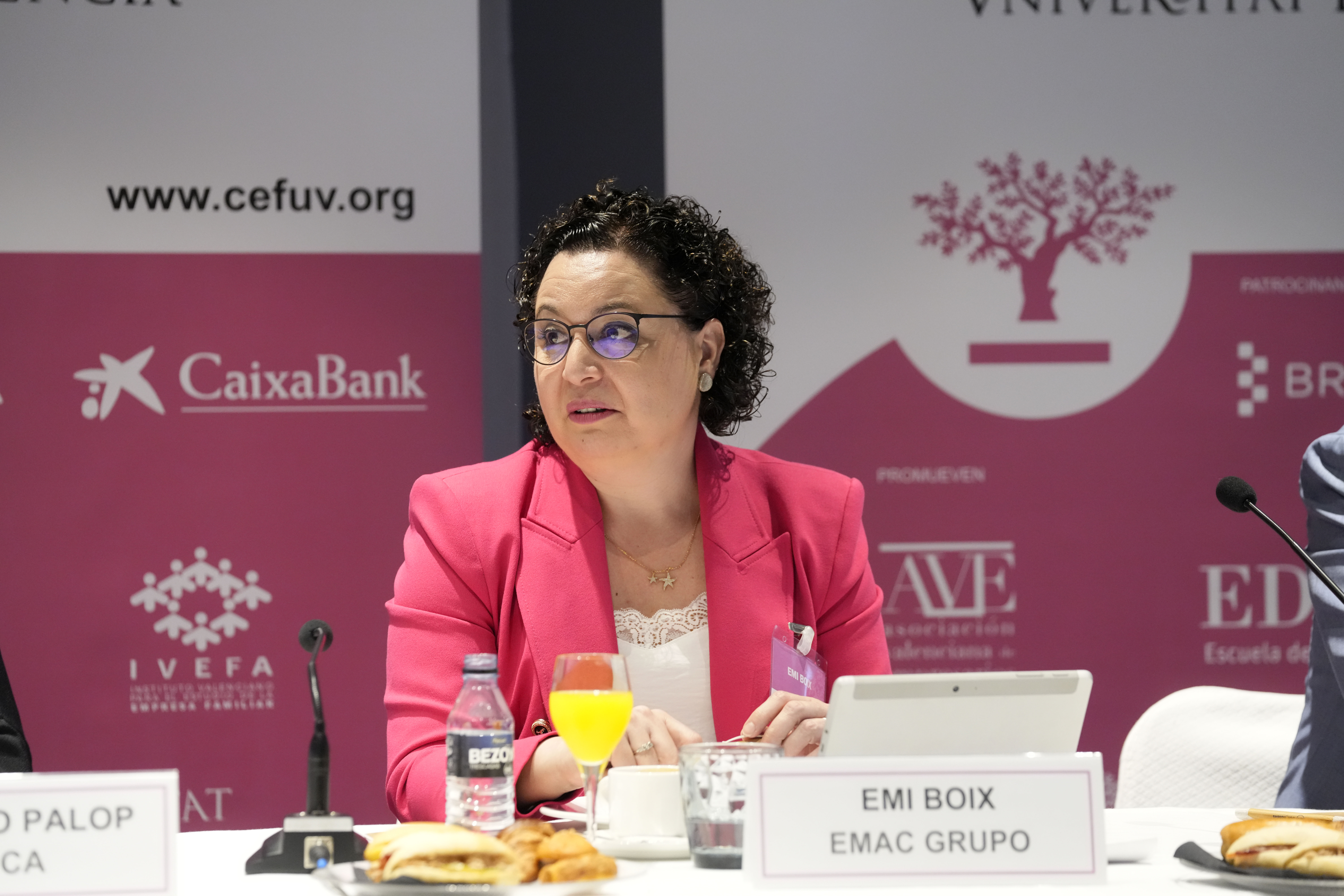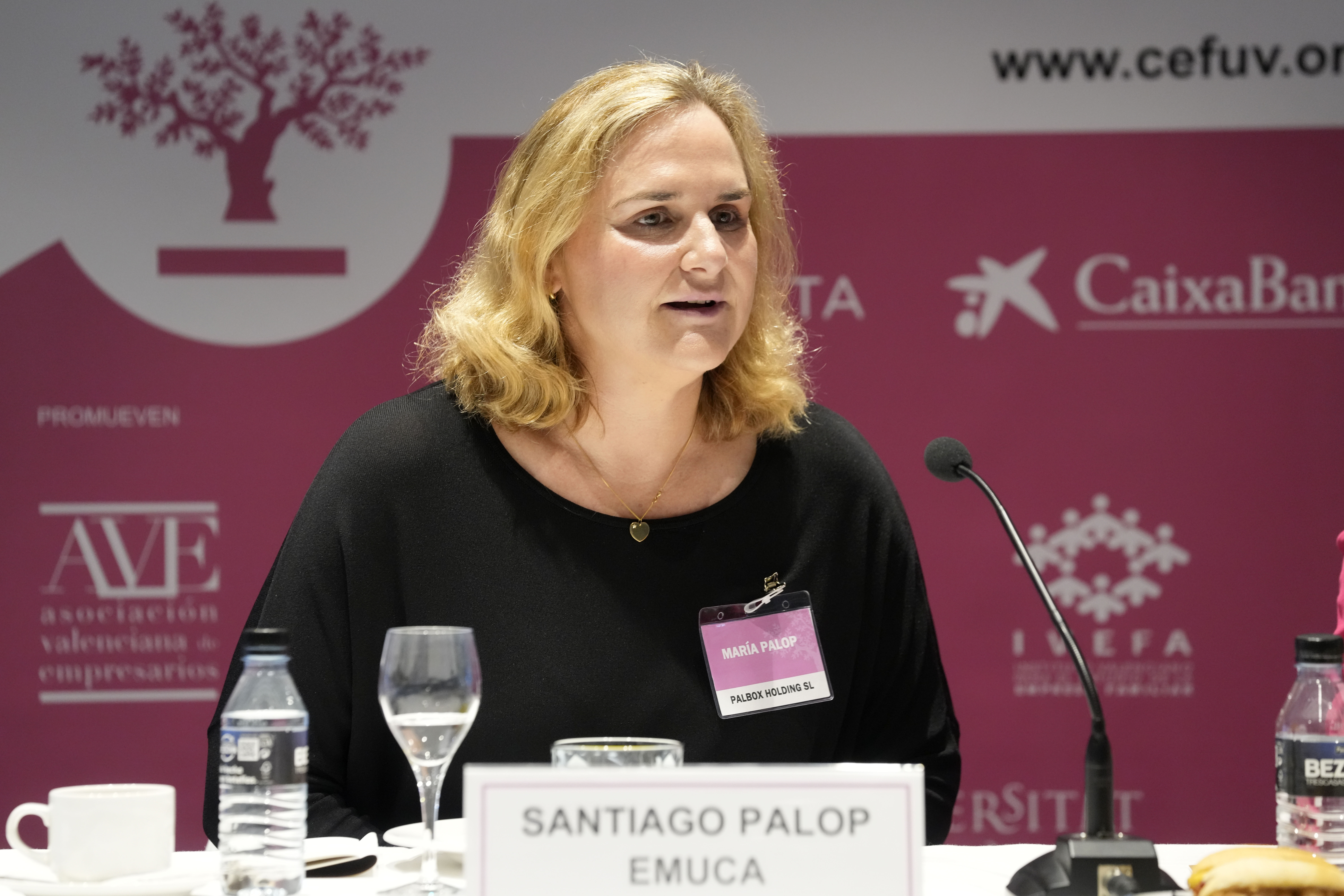
On Friday 26 May, a new breakfast of the Chair of Family Business of the University of Valencia (CEFUV) took place. As usual in these breakfast-colloquiums, attendees had the opportunity to learn first-hand about the experience of two family businesses, and find inspiration from them. On this occasion, we were able to learn about the positive aspects of their progress towards a more formalised and structured corporate governance model, understand the challenges and efforts required by this process and reflect on when and how to start on the road to improving corporate governance practices.
The cases that served as a basis for debate on the advisability of developing the governing bodies in family businesses, both the board of directors and the family council, were those of EMAC Group, led by its Executive Director Emi Boix, and of Emuca Group, represented by Maria Palop, president of the family corporate group #Grupo_Palbox, to which it belongs.
The two speakers introduced their companies and the current characteristics of their #corporate_governance systems. Two family businesses that are in their second generation and that have evolved from a model of a single administrator or with the founder of the business dominating, towards formalized and professionalized systems of governance, developed through a #Board_of_Directors with the presence of outsiders and accompanied by other systems such as the #Family_Council or the existence and regular updating of a #family_protocol.
The two speakers agreed on the importance of combining the positive aspects of the different governing bodies, which complement each other to ensure that decisions in the board of directors are prepared in advance in search of consensus. They also mentioned the usefulness of the family council in nurturing the pride of belonging of all family members, especially the younger members.
Positive aspects of the formalisation of governing bodies
Both Emi Boix and María Palop agreed that the formalisation of the board of directors facilitates the adoption of a series of routines and attitudes that improve company management. They mentioned the positive effect on discipline in management bodies, greater transparency and accountability, and the demand for professionalism and rigour in all areas and at all levels of the company.
Moreover, it was particularly interesting to hear that in both cases, this formalisation of the board resulted in the adoption of a deeper strategic reflection on what the owner family and the professionals (whether family or not) who run the company want for the future of the family business. In the same vein, they considered the board to be a very useful element in preparing the succession of the company with a long-term view.
The presence of outsiders was highly valued for their contribution as specialists, for their experience in management processes and in the agenda of boards of directors, and for their greater objectivity and contribution of good practices in decision-making.
Having a well-functioning board of directors is also a signal to the outside world and can be important in attracting professionals to join and develop professionally within the company.
Challenges in developing and evolving governance systems
The first challenge to be faced in setting in motion a process of developing and evolving governance systems towards more formalized approaches is to achieve consensus and buy-in from shareholders, and in some cases, the founder as a key decision-maker.
Sometimes it is not easy to discuss the best way to run the company and there may be conflicting views among different family members or shareholders. Building trust among family members and conveying to the founder the idea that these changes will benefit the future of the family business are key in this process.
The importance of communication between shareholders, family members, management and employees came to light here. Trust is built through evidence of the ability and competence of those responsible for managing the company, their integrity, benevolence, perseverance and patience in internalizing the desirability of change and reaching consensus on its development.
A second important challenge for making progress in good practices is to identify and involve people with the right profiles to sit on the board of directors. The inclusion of specialists in important issues for the company, the training of shareholders and directors in management processes and in the dynamics of boards of directors are key aspects for the board to improve its functioning over time. They stressed the importance of these professionals in separating the aspects that are the responsibility of the board from those that correspond to other organizational levels, such as the management team or the shareholders' meeting.
The subsequent debate with the attendees included the importance of equipping the board with suitable profiles for the main challenges that all companies will face, such as digitalization and sustainability.
In this sense, both speakers acknowledged that the implementation of an effective board of directors does not happen overnight, and that it is a process of continuous improvement, incorporating new issues, adopting deeper approaches and more solid criteria, as one learns to work in these meetings.
The dynamics of the board, the management of meetings, the handling of discrepancies based on respect for the knowledge and experience of others, also emerged in the discussion with the participants as elements that must be learnt and developed in order for the board to be more effective. In this sense, prior communication (often between members of the business family) is fundamental to avoid emotionally charged confrontations that can be difficult to manage in a board meeting.
Choosing the "right" time to formalize the board
The evolution from more personalistic management and governance models to board-based systems requires finding the right moment to initiate changes.
Both Emi Boix and María Palop agreed that it is best to consider these changes when there is harmony and understanding among the members of the business family. It is easier to work with boards when there are no open conflicts.
However, they insisted that these consensuses must be worked out with time and patience, and with a lot of communication between all the people and groups involved. The existence of a "family strategy" that reflects on the desired future and the sustainability of the model helps in this process.
The role of outsiders in building consensus and generating "awareness" of the good that this can do for the company was noted.
All in all, the breakfast offered many points of interest for all attendees and aroused curiosity and awareness in many of the people present.
Images:















